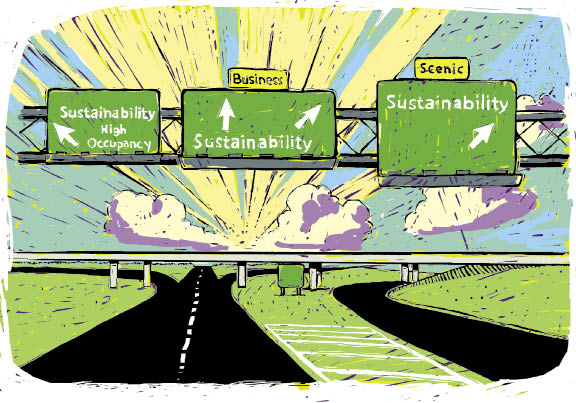 Sustainability is a phrase that gets thrown around so frequently that there is little consideration about what the word really means. After all, who can be opposed to sustainable agriculture?
Sustainability is a phrase that gets thrown around so frequently that there is little consideration about what the word really means. After all, who can be opposed to sustainable agriculture?
Sustainability was famously described as meeting the needs of the present without compromising the ability of future generations to meet their own needs.
The vision of sustainable agriculture is more philosophical than a well-defined goal. It certainly includes the stewardship of natural resources, financial security for farmers and consideration of societal goals. However, since there is no agreement on how to achieve these objectives, these terms can be twisted to meet personal agendas.
Many will agree that each person has an individual preference on how to balance current consumption with future enjoyment. Frequently we want things now, instead of waiting for a future reward. Some people are careful savers for the future, while others spend all that they earn. Achieving sustainability is a flexible goal that reflects individual priorities and incentives. There are also regional considerations that must be factored into sustainability objectives.
The unprecedented pressure on the global food supply to meet the growing population requires close examination of all our current practices. Our soil and water resources are under severe stress in some areas. Like all geologic resources, the supply of phosphate and potash is finite in the world. Although there is no risk of fertilizer shortage in the next centuries, consideration of appropriate conservation and recycling practices should always be in the forefront of their use. Modern food systems require the input of considerable energy. There are numerous changes that can be made to make our food supply more sustainable.
Some groups promote a return to organic fertilization practices, other voices suggest that agroecology or integrated nutrient management is the path toward sustainability. Being dogmatic about a single solution causes more conflict than progress. There is no single path toward achieving agricultural sustainability.
IPNI is dedicated to the development and delivery of the best scientific information about the responsible use of plant nutrients. Instead of arguing over which definition of agricultural sustainability is correct, let's get on with the task of using plant nutrients as efficiently and effectively as possible.
Editor's note: This column appeared in Vol. XCVII (97) 2013, No. 2 of Better Crops with Plant Food, a publication of the International Plant Nutrition Institute. Mikkelsen is the IPNI Western North American program director. The mission of IPNI is to develop and promote scientific information about the responsible management of plant nutrition for the benefit of the human family.
Email: RMikkelsen@ipni.net.